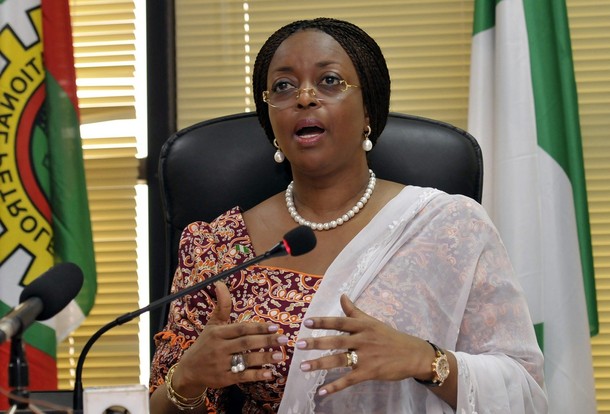- Army, DSS, Police, Others Collected From Diezani’s $115m Bribe
The Economic and Financial Commission on Thursday named some of the individuals and public officials who collected from an alleged bribe of $115m doled out by a former Minister of Petroleum Resources, Mrs. Diezani Allison-Madueke, to compromise the 2015 general elections.
In a document tendered by the anti-graft agency before the Federal High Court in Lagos on Thursday, it stated that the Resident Assistant Inspector-General of Police in Kwara State at the time received N1m cash.
The document stated that while the Commissioner of Police in Kwara State at the time received N10m cash, the Deputy Commissioner of Police in charge of Operations got N2m cash.
Similarly, both the Assistant Commissioners of Police in charge of operations and administration in Kwara State, according to the document, received N1m cash each.
The document also showed that the Resident Electoral Commissioner in Kwara State for the 2015 general elections was also given a cash of N10m, while the Independent National Electoral Commission’s Administrative Secretary in Kwara State at the time received N5m cash.
The INEC Head of Department, Operations and “his boys” were given N5m, while “other officers” received and shared N2m among themselves.
Also listed as beneficiaries of the Diezani bribe in Kwara State were OC Mopol and “his men”, who got N7m; 21c Mopol and men in the state, who got N10m; the Director of the DSS and his men, who got N2.5m.
The military in Kwara State was bribed with N50m, according to the document, while other security agencies including the Nigeria Security and Civil Defence Corps and the Federal Road Safety Corps got N20m.
An investigator with the EFCC, Usman Zakari, who brought the document to court on Thursday, told Justice Rilwan Aikawa that it was recovered from a Senior Advocate of Nigeria, Mr. Dele Belgore.
Belgore is standing trial before Justice Aikawa for allegedly collecting N450m from Diezani and distributing same to beneficiaries in Kwara State.
The EFCC accused him of handling the money in cash without going through any financial institution, an act said to be an offence under sections 1(a), 16(d), 15(2)(d) and 18(a) of the Money Laundering (Prohibition) (Amendment) Act, 2012.
The EFCC said Belgore is liable to be punished under sections 15(3)(4), and 16(2)(b) of the same Act.
Standing trial along with Belgore for the offence is a former Minister of National Planning, Prof. Abubakar Suleiman.
The SAN and the don were arraigned on charges of money laundering on February 8, 2017 but they pleaded not guilty.
Zakari is the second witness to be called by the EFCC in its efforts to prove its case.
Testifying before Justice Aikawa on Thursday, Zakari explained that Belgore volunteered the list to the EFCC when he was invited and interrogated by the anti-graft agency.
The investigator pointed out to the court Belgore’s endorsement on the document titled, “Security and Transportation per State,” stating: “document supplied by me, Mohammed Dele Belgore (SAN).”
Equally, the EFCC exhibited another document recovered from Belgore also showing other beneficiaries.
The document simply titled “Kwara State” showed beneficiaries of a sum of N155,220,000 and the breakdown of what they got.
Among them were 15 electoral officers who each received, 250,000; 15 supervisors, who got N100,000 each; the state Returning Officer, who got N1m, among others.
The two documents were tendered by the EFCC prosecutor, Mr. Rotimi Oyedepo, and admitted in evidence as Exhibit 7 and 7A, against Belgore and Suleiman, as their lawyers, Mr. Ebun Shofunde (SAN) and Mr. Olatunji Ayanlaja (SAN), raised no objection.
In his evidence, Zakari told the court that the EFCC’s findings showed that the money was disbursed in cash to the beneficiaries.
“My Lord, the mode of payment, as contained in Exhibit 7, is cash payment. The payments were not done through any financial institution,” Zakari said.
The case was adjourned till July 7.




 Naira4 weeks ago
Naira4 weeks ago


 Naira3 weeks ago
Naira3 weeks ago


 News4 weeks ago
News4 weeks ago
 Travel4 weeks ago
Travel4 weeks ago




 Naira4 weeks ago
Naira4 weeks ago


 Jobs3 weeks ago
Jobs3 weeks ago
 Naira3 weeks ago
Naira3 weeks ago


 Travel3 weeks ago
Travel3 weeks ago



















